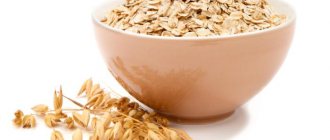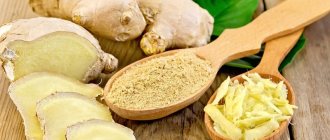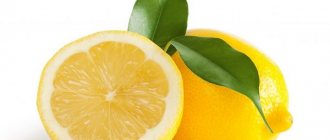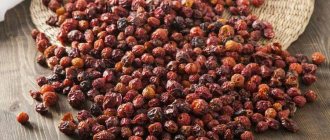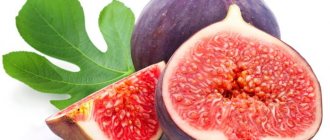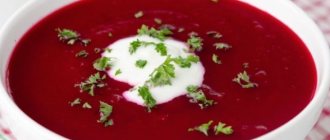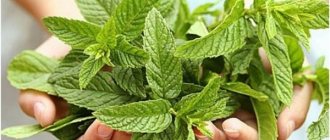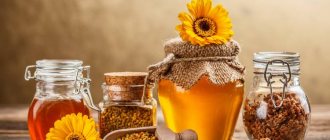The period of breastfeeding often becomes a real test for a young mother. Doctors advise avoiding foods that cause allergies. The baby's body can react to the slightest changes in diet. In addition, there is constant nervous tension due to changes in the usual lifestyle and worries about the baby’s health. Proper use of chamomile during breastfeeding can have a positive effect on quality of life. It has a beneficial effect on the well-being of women and children. This medicinal plant can relieve digestive problems and help combat feelings of excessive anxiety.
Composition of a medicinal plant
There are many varieties of chamomile. Therefore, the choice of a medicinal plant during the feeding period should be taken responsibly. Pay attention to chamomile. It is also known as maiden flower, queen flower, and romaine.
The medicinal collection sold in almost every pharmacy consists of dried inflorescences of the plant of the same name. Healing herbs can be added to your medicine cabinet for internal and external use.
Flowers are collected in ecologically clean regions. The best time for collection is warm, sunny days. Then they are dried in natural conditions in a well-ventilated room.
Pharmacies offer natural medicine in the form of dry raw materials and tea bags. Brew the healing mixture with boiling water. After preparation, you need to defend the drink. The composition of the plant differs in a large number:
- flavonoids;
- organic acids;
- phytosterols;
- carotene;
- ascorbic acid;
- polysaccharides;
- tannins and mucous substances;
- essential oils.
The combination of these components provides the medicinal properties of the flower. The product has been used in folk medicine for several centuries. This healing composition is relevant for young mothers.
Tea made from chamomile flowers, when consumed correctly, helps relieve overstimulation of the nervous system, regulate the menstrual cycle, strengthen the immune system, improve the condition of the skin and stabilize digestion.
Beneficial features
Chamomile is known for many beneficial properties. Medicinal flowers are used in the treatment of various diseases. This drug is recommended for use for the following ailments:
- Therapy for gastritis. If a woman suffered from gastrointestinal problems before childbirth, then there is a high probability of their exacerbation during breastfeeding. Chamomile during breastfeeding will improve your health. Your doctor will help you determine the dosage of the drug.
- Drinking chamomile tea for colds is especially popular. Ascorbic acid, which is part of the healing collection, helps strengthen the immune system, which significantly reduces the risk of seasonal diseases. Chamomile tea relieves sore throats and helps to quickly lower body temperature. The decoction can be used to gargle.
- Pharmaceutical chamomile is useful for inflammation of the genitourinary system. This drink allows you to quickly eliminate the symptoms of cystitis and pyelonephritis.
- The plant is considered a sedative, which can be rationally used to relieve stress and relax the nervous system.
- Chamomile infusions and teas will help prevent postpartum depression and relieve feelings of excessive tension.
Subject to consultation with a gynecologist, the plant can be used in the treatment of certain female problems that may be especially bothersome after recent childbirth.
Using medicinal herbs while breastfeeding
In general, drinking chamomile tea while breastfeeding is considered safe for both mother and baby.
In Western Australia, a study was conducted on a group of 304 women over 18 years of age who practiced breastfeeding their children. The study identified 51 herbal remedies used by breastfeeding women. The top three medicinal herbs most commonly used during breastfeeding, in descending order of popularity, included fenugreek (18.4%), ginger (11.8%), and chamomile (7.2%). Women were asked to indicate their reasons for using herbal tinctures, who recommended them, and their opinion about whether the herbal medicine was helpful in solving their problems. The proportion of women who reported herbs as beneficial ranged from 20.0% to 83.3%. Thus, 59.1% of women considered chamomile tea to be an effective drug, the use of which relieves stress, relaxes and calms. [1]
More than 70% of study participants agreed that they lacked information resources regarding the use of medicinal herbs during breastfeeding.
Indications for use
Pharmaceutical chamomile is much safer than using chemical drugs. But even taking medicinal herbs should be done after consultation with your doctor. The specialist will determine the optimal dosage of the drug. By following the instructions, the woman and child will receive maximum benefit.
Use of the product by a nursing mother will be useful in solving the following problems:
- increased nervous excitability and sleep disturbances;
- colds;
- skin problems;
- digestive disorders and loss of appetite;
- diseases of the genitourinary system.
- toothache.
The problems require the use of different forms of medication. It is important to follow the dosage prescribed by the doctor. The most effective treatment can only be determined individually, in consultation with your doctor.
Rules for use during breastfeeding
If you are not allergic, chamomile tea can be drunk while breastfeeding. Pharmaceutical chamomile is suitable for brewing. Other varieties of the plant are intended for external use.
You should not brew flowers with other herbs, as their properties can have a negative impact on lactation and the health of the baby.
During lactation, the drug should be taken following the following recommendations:
- drink tea or infusion, but not decoction;
- brew the flowers of the plant for no more than 10 minutes;
- drink 2–3 cups of drink a day, but no more;
- taking the medicinal plant should not exceed 2 weeks;
- start with small doses to check your baby's reaction.
If your child experiences allergic reactions or other changes in health, stop using the drug and consult a doctor.
Is it possible to drink chamomile during breastfeeding?
While breastfeeding, you can drink chamomile up to 1-2 times a day. The medicinal plant is considered hypoallergenic and does not cause harm to health in the absence of contraindications. Therefore, the herbal mixture is safe for hepatitis B. It is taken as a prevention of postpartum depression, to relieve mental and physical stress, and eliminate swelling.
For children under one year of age, bathing in a medicinal decoction is allowed. It is mixed with water in a ratio of 1:5, and it is forbidden to add foam-creating agents. The decoction allows you to get rid of prickly heat, eliminate itching and diathesis, and accelerates the healing of the suture after cutting the umbilical cord.
When a woman uses chamomile tea, the risk of developing infectious and inflammatory diseases in her and her child is reduced. It is forbidden to take medicines based on the plant, as they are considered dangerous for newborns. In addition to chamomile, they may contain synthetic or highly allergenic natural ingredients that provoke an allergic reaction in the child and create a burden on the liver.
Before using the product, the mother must make sure that the child tolerates the herbal product well.
The child's body has not previously encountered the active compounds in chamomile, so it is impossible to predict how it will react to the substances. To avoid the development of allergies and anaphylactic shock, it is recommended to start drinking tea in small doses. A woman must act according to the following algorithm:
- For the first time, 50 ml of decoction is allowed.
- The mother should closely monitor the baby's condition for 24 hours. During this period, allergy symptoms appear.
- For skin redness, rashes, vomiting and respiratory failure, it is necessary to completely exclude chamomile tea from the diet. It is also not recommended to take the product if a woman feels nauseous.
In some infants, the allergic reaction manifests itself in a non-standard way: watery eyes, runny nose and cough. These symptoms are similar to a cold, but they do not cause an increase in body temperature.
We recommend that you read: Does the pumpkin weaken or strengthen
If there is no negative effect, you can drink chamomile according to the following rules:
- A woman brews 1 tsp. dried flowers or ready-made sachet 250 ml hot water.
- You can leave the product for no more than 15 minutes. If you get a concentrated solution, the risk of developing allergies in a newborn increases.
- A nursing woman is allowed to use the product 2 times a day, provided that the lactation process is proceeding normally. It is recommended to drink the product in the evening and before bed. If not enough milk is produced, drink the solution once a day at night. The duration of therapy is 2 weeks, then take a break for 7-14 days.
- Children over 8 months can be given chamomile tea in a small dosage. For the first time, the child is given 1 tsp. decoction, further use of up to 50 ml per day is allowed.
How does chamomile tea affect the body of a nursing mother?
Pharmacy chamomile is the most affordable and safe plant-based drug during lactation. External use of medicinal herbs has no side effects. Teas and baths with chamomile are beneficial for the health of a nursing woman.
Chamomile soothes and improves sleep
A healthy and happy mother is a well-rested woman. It is quite difficult to fulfill this condition with a baby. Even when the baby falls asleep and gains strength, the mother’s weakened body is not always ready to switch off. The most effective and safe way to normalize sleep is to drink chamomile tea.
Helps with colds
During breastfeeding, as well as during pregnancy, the use of most medications is prohibited. But a woman’s body is significantly weakened after childbirth, which increases the risk of colds. The best way to prevent and treat them is hot chamomile tea.
Healing herbs will minimize the risk of the cold spreading to the baby and allow the mother to recover faster.
Helps with cracked nipples
Many women during breastfeeding face the unpleasant problem of cracked nipples. With prolonged illness, the breast begins to bleed, which not only causes significant pain, but can also cause the cessation of breastfeeding. External use of chamomile infusion will help to avoid troubles.
Helps normalize the menstrual cycle
A decoction prepared from chamomile flowers helps restore a woman’s hormonal levels. The doctor may prescribe such a medicinal drug for heavy monthly bleeding, menstrual pain, or cycle irregularity.
Useful properties and applications
The pharmacy offers nursing mothers teas (for children and adults) that contain chamomile. This suggests that the plant is safe for the baby’s health.
For a nursing mother with breastfeeding
Chamomile tea helps mom cope with postpartum depression. It helps you fully relax and unwind.
For a newborn
Chamomile does not have any harmful effects on the child. In caring for an infant, it is used externally:
- the infusion is added to the bath while bathing, it softens the skin, reduces inflammation caused by diaper rash;
- The eyes are washed with a strained decoction if purulent compartments appear in them after sleep;
- clean the nose from crusts with a cotton swab dipped in chamomile infusion.
The doctor prescribes chamomile tea to newborns in three cases: when the baby has problems with stool, during teething, with poor sleep and increased excitability. Before the first use (external, internal), a test is done for an allergic reaction.
During daytime sleep, a cotton pad soaked in chamomile infusion is placed on the baby's hand. Any reaction indicates an allergy: redness, blisters, rashes. In this case, the mother is contraindicated to take chamomile infusions, decoctions, and teas internally. External use is permitted. It will not harm the baby, since the active substances will not pass into breast milk.
Possible harm
Chamomile is a medicinal plant. It should be used as prescribed by a doctor. The active ingredients are absorbed into milk, so they can affect the child’s body. Chamomile can cause allergies in infants.
You need to worry about the following symptoms:
- skin redness and rash;
- loss of appetite;
- nausea, vomiting;
- gastrointestinal problems;
- continuous crying.
If you notice alarming symptoms, consult your doctor. You should also avoid using chamomile.
